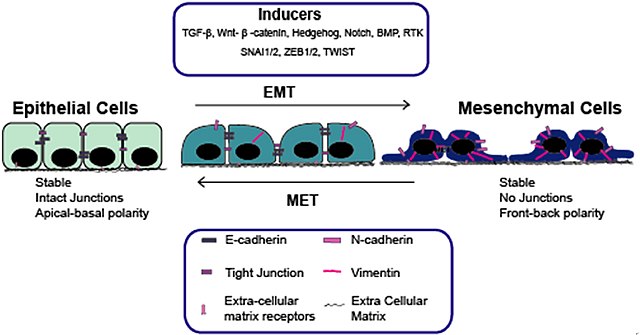Neural Darwinism is a biological, and more specifically Darwinian and selectionist, approach to understanding global brain function, originally proposed by American biologist, researcher and Nobel-Prize recipient Gerald Maurice Edelman. Edelman's 1987 book Neural Darwinism introduced the public to the theory of neuronal group selection (TNGS) – which is the core theory underlying Edelman's explanation of global brain function.
Edelman giving a lecture, September 30, 2010
Mesenchymal-epithelial transitions – epithelia to mesenchyme (EMT) and mesenchyme to epithelia (MET) transitions utilizing CAMs and SAMs to form epethelia; and, growth factors and inducers to mediate the transition to mesenchyme as the CAMs and SAMs are withdrawn or localized on the cell membrane.
Gerald Maurice Edelman was an American biologist who shared the 1972 Nobel Prize in Physiology or Medicine for work with Rodney Robert Porter on the immune system. Edelman's Nobel Prize-winning research concerned discovery of the structure of antibody molecules. In interviews, he has said that the way the components of the immune system evolve over the life of the individual is analogous to the way the components of the brain evolve in a lifetime. There is a continuity in this way between his work on the immune system, for which he won the Nobel Prize, and his later work in neuroscience and in philosophy of mind.
Gerald Edelman



